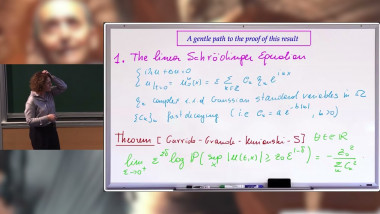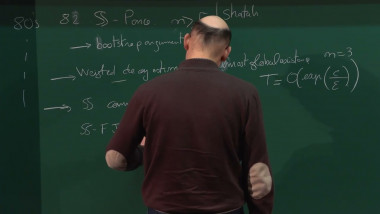
Rogue Waves and Large Deviations for the 2D Pure Gravity Deep Water Wave Problem
De Gigiola Stafillani

Waves, Nonlinearity and Geometry or How Sergiu Klainerman Has Influenced Generations of Mathematicians
De Jacques Smulevici
Apparaît dans la collection : Banach spaces and their applications in analysis / Espaces de Banach et applications à l'analyse
Nigel Kalton played a prominent role in the development of a holomorphic functional calculus for unbounded sectorial operators. He showed, in particular, that such a calculus is highly unstable under perturbation: given an operator $D$ with a bounded functional calculus, fairly stringent conditions have to be imposed on a perturbation $B$ for $DB$ to also have a bounded functional calculus. Nigel, however, often mentioned that, while these results give a fairly complete picture of what is true at a pure operator theoretic level, more should be true for special classes of differential operators. In this talk, I will briefly review Nigel's general results before focusing on differential operators with perturbed coefficients acting on $L_p(\mathbb{R}^{n})$. I will present, in particular, recent joint work with $D$. Frey and A. McIntosh that demonstrates how stable the functional calculus is in this case. The emphasis will be on trying, as suggested by Nigel, to understand what makes differential operators so special from an operator theoretic point of view.
